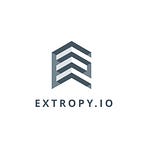Five Steps to Become a Smart Contract Auditor
Introduction
In the rapidly evolving world of blockchain, smart contract auditing has become a linchpin for the security and reliability of decentralized applications. As billions of dollars flow through smart contracts on various blockchain platforms, the stakes have never been higher. This surge in the use and value of smart contracts has escalated the demand for proficient auditors who can ensure their integrity and security.
The crux of becoming an effective smart contract auditor lies not just in understanding the programming language or the underlying protocol, but in adopting a hacker’s mindset. An auditor’s primary role goes beyond checking if the smart contract does what it’s supposed to; it’s about delving into the myriad of ways it could be exploited. In essence, thinking like a hacker means understanding the developer’s intentions and, more critically, anticipating what the developer might not have foreseen. This approach is vital in identifying vulnerabilities that could lead to potential exploits, safeguarding the blockchain ecosystem, and maintaining trust in decentralised technologies.
1. The Mind of a Hacker
Understanding a hacker’s mindset is crucial for a smart contract auditor. Hackers look at smart contracts differently, focusing not on what they’re meant to do, but on how they can be manipulated or broken. This mindset involves a deep understanding of both the technical aspects and potential loopholes in the code.
2. Beyond the Code — Thinking Unconventionally
In smart contract auditing, it’s vital to look beyond the intended functionality of the code to what it could potentially do if exploited. This means thinking unconventionally, looking for ways the code might behave under unexpected conditions or inputs.
Key strategies include:
- Stress Testing: Pushing the contract to its limits in various scenarios to uncover hidden flaws.
- Boundary Analysis: Examining how the contract behaves at extreme ends of input ranges or operational limits.
- Control Flow Analysis: Tracing the path of execution to identify points where control might be subverted.
These strategies help auditors think creatively and anticipate unconventional attack vectors, ensuring a robust defense against potential exploits.
3. Essential Skills for a Smart Contract Auditor
To excel as a smart contract auditor, certain essential skills are paramount:
Technical Skills:
- Coding Proficiency: A strong grasp of smart contract programming languages, primarily Solidity, is crucial. Understanding the nuances of how code translates into contract behavior is key.
- Blockchain Fundamentals: Knowledge of blockchain principles, consensus mechanisms, and the specific quirks of different blockchain platforms is vital.
Analytical Skills:
- Problem-Solving: Auditors must be adept at unraveling complex problems, often thinking several steps ahead to identify potential issues.
- Critical Thinking: This involves questioning assumptions, evaluating arguments, and synthesizing information to draw logical conclusions and anticipate unconventional risks.
Combining these technical and analytical skills empowers auditors to thoroughly assess smart contracts and protect the integrity of blockchain networks.
4. Practical Experience
Gaining practical experience is a crucial part of becoming a proficient smart contract auditor. Hands-on experience cements theoretical knowledge and hones real-world problem-solving skills. Here are some ways to gain valuable experience:
- Participate in Bug Bounty Programs: These programs offer a real-world platform to test your skills in identifying vulnerabilities. They’re a great way to learn from actual scenarios and contribute to the security of established projects.
- Audit Open-Source Projects: Volunteering to audit code for open-source blockchain projects can provide diverse experiences. It’s an opportunity to explore various coding styles and potential vulnerabilities.
- Collaborate with Peers: Joining or forming study groups and communities can facilitate practical learning through peer reviews and collaborative projects.
This hands-on approach not only builds skills but also establishes a track record that can be vital for career growth.
5. Continuous Learning and Community Engagement
In the ever-changing landscape of blockchain and smart contracts, continuous learning is not just a benefit, it’s a necessity. Staying updated with the latest advancements, security practices, and technological shifts is crucial.
- Engage in Continuous Education: Follow industry news, attend webinars, and take advanced courses.
- Community Involvement: Join forums, attend meetups, and participate in blockchain communities. These platforms offer invaluable opportunities for knowledge exchange and networking, fostering a culture of collective growth and innovation.
This approach positions you as a thought leader and a valuable resource in the blockchain community, enhancing your credibility and potentially leading to organic interest in your courses.
Conclusion
Smart contract auditing stands as a crucial, ever-evolving career path in the blockchain ecosystem. It’s a field where analytical prowess, technical skill, and a security-first mindset converge to create a dynamic and rewarding professional journey. For those new to this domain or looking to deepen their expertise, embarking on this path means embracing continuous learning, engaging with a community of like-minded experts, and always staying a step ahead in security practices. As the blockchain landscape grows, so does the need for skilled auditors — making this a field ripe with opportunities for those ready to accept the challenge.
Embark on this journey with a commitment to security and innovation, and become part of shaping the future of blockchain technology.
